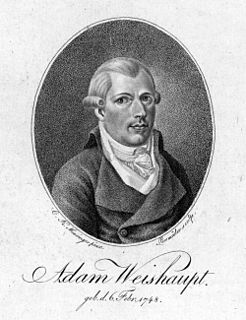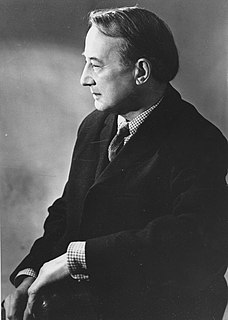Цитата Адама Вейсгаупта
И из всего озарения, которое может дать человеческий разум, ни одно не сравнится с открытием того, что мы есть, нашей природы, наших обязанностей, на какое счастье мы способны и каковы средства его достижения.
Связанные цитаты
Наше современное мировоззрение трагически неправильно понимает и неверно определяет, что значит быть человеком. Наше общество приучает нас верить, что счастье приходит от удовольствия, или от получения вещей, или от власти над людьми, или от денег, или от славы, или даже от здоровья и выживания. Ни одна из этих иногда очень хороших вещей не может придать нашей жизни высший смысл. Мы рождаемся, чтобы быть глубоко сознательными, внутренне свободными и глубоко способными к любви. Стремление к этим вещам является определением того, что значит быть человеком.
Понимание человеческой природы должно быть основой любого реального улучшения человеческой жизни. Наука совершила чудеса в изучении законов физического мира, но наша собственная природа до сих пор изучена гораздо меньше, чем природа звезд и электронов. Когда наука научится понимать человеческую природу, она сможет принести в нашу жизнь счастье, которого не смогли создать машины и физические науки.
"Хлеб наш насущный дай нам на сей день", под "на сей день" мы подразумеваем "в это время", когда мы либо просим о том довольстве, подразумевая под именем хлеба всю нашу нужду, которая является выдающейся частью ее , или для таинства верующих, которое необходимо в настоящее время для достижения не столько этого временного, сколько того вечного счастья.
Я не могу сказать, является ли то, что мир считает «счастьем», счастьем или нет. Все, что я знаю, это то, что когда я думаю о том, как они идут к ее достижению, я вижу их увлеченными, мрачными и одержимыми, в общем натиске человеческого стада, неспособными ни остановить себя, ни изменить свое направление. Все это время они утверждают, что вот-вот достигнут счастья.
Природа наделила землю великолепными чудесами и огромными ресурсами, которые мы можем использовать в своих целях. Независимо от наших вкусов или нашего образа жизни, нет ничего, что представляло бы больше вариаций, дающих нагрузку на наше воображение, чем почва, и, конечно же, ничто не было так важно для наших предков, для нас самих и для наших детей.
В настоящий момент в нашей культуре это стремление к смыслу и сознанию, это стремление отдавать и служить чему-то более высокому, чем мы сами, прорывает твердую корку нашего широко распространенного культурного материализма и псевдонаучной недооценки того, чем должен быть человек. вместе с столь же трагической переоценкой того, на что мы, человеческие существа, способны в нашем нынешнем повседневном состоянии бытия. Интенсивность нынешней путаницы в отношении природы и существования Бога является симптомом этого стремления во всей нашей современной культуре.
Полностью отдаться любви, будь то человеческая или божественная, означает отказаться от всего, включая собственное благополучие или способность принимать решения. Это означает любить в самом глубоком смысле этого слова. Истина в том, что мы не хотим спастись тем путем, который избрал Бог; мы хотим сохранять абсолютный контроль над каждым своим шагом, полностью осознавать свои решения, быть способными выбирать объект нашего поклонения.
Величайшим из всех наших человеческих понятий является бессмертие личности и вечная слава человеческой души. Всю вечность ты будешь самим собой, а я буду собой, с обостренными чувствами, усиленными способностями восприятия и значительно возросшими способностями к разуму, пониманию, любви и счастью — все эти качества мы можем развить сейчас. Наши машины изнашиваются, наши амбары рушатся, и наша субстанция обращается в прах, но наша лучшая коллекция личных качеств будет иметь вечную жизнь.
Даже в джунглях кое-где вырастают прекрасные цветы, таково плодородие природы, и как бы плохо наши пасторы и хозяева ни управляли нашим обществом, сколько бы они ни рвали на куски то, что, по их утверждению, сохраняют неприкосновенным, природа остается плодородной. , люди рождаются с человеческими чертами, иногда человеческая сила перевешивает человеческую слабость, и человеческая грация проявляется среди человеческого уродства. «В самые кровавые времена, — как говорится в нашей пьесе, — есть добрые люди».




































